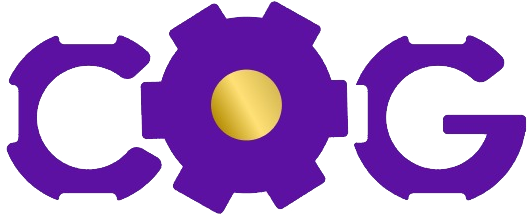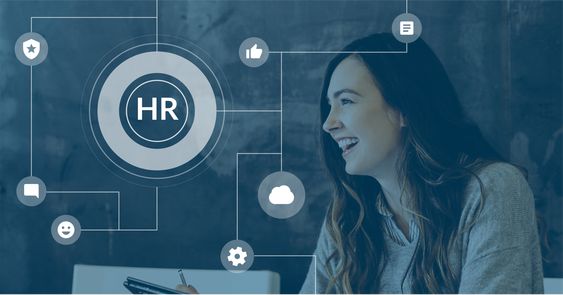The Growing Influence of Automation in HR
New technologies are pushing boundaries and redefining the HR landscape. One of these game-changers is automation, which is becoming an indispensable tool for efficient workforce management. Let’s explore how automation is carving out a new path in HR.
AI-powered Recruitment Tools
The first contact between potential employees and a company often takes place through recruitment processes, and technology is making this increasingly automated. AI-powered recruitment tools are now able to scan through resumes and shortlist potential candidates based on specific criteria, saving valuable time and resources.
These include:
• Smart algorithms that can correlate job specifications with candidate profiles.
• Chatbots to enhance candidate engagement and simplify initial screenings.
• Analytics that provide meaningful insights into candidate behavior and preferences.
While some worry that this could make the recruitment process impersonal, in reality, it frees up HR professionals to focus on the aspects that truly require a human touch, such as personal interviews.
Streamlining Onboarding Processes
Onboarding is another process where automation brings in efficiency. Instead of handling manual, paper-based tasks, HR professionals can now utilize automated onboarding software to manage everything from employee data collection to training scheduling with just a few clicks.
This can reduce errors, speed up the process, and provide new hires with a smoother, more engaging experience. Moreover, automation also allows HR departments to focus on building a more welcoming culture and encouraging new hires to immerse themselves in the company’s vision and goals.
In conclusion, automation is radically improving the way HR duties are being performed, thus allowing for a more strategic, people-centric approach to HR management.
The Role of Artificial Intelligence in Workforce Management
Artificial intelligence has become a game changer in workforce management. One of the significant areas where AI is creating a vast impact is in predictive analytics and performance management.
Predictive Analytics for Performance Management
Predictive analytics is not a new term in the business world, but AI’s integration into performance management is a revolution in itself. Through advanced AI algorithms, HR professionals can mine massive employee data sets and forecast potential trends, helping make more informed decisions. For example, AI can help predict which employees are most likely to leave a job, thereby aiding in proactive retention strategies.
Here are a few key applications:
– Predictive hiring: AI can analyse past hiring data and determine the success rate of different hiring sources, thereby optimizing future recruitment strategies.
– Employee performance forecasting: By analyzing past performance data, AI can provide insights into employee productivity trends and help predict future performance.
– Risk assessment: AI can predict potential risks based on data trends, thus enabling a prevention-focused approach towards workforce management.
AI-driven Employee Training and Development
An equally intriguing aspect of AI in workforce management is its role in employee training and development. Traditional training methods can be impersonal and inflexible. On the contrary, AI-driven platforms can offer personalized, adaptive and interactive learning experiences that cater to each individual’s needs.
AI technology can:
– Identify gaps in an employee’s skills or knowledge based on performance data.
– Suggest suitable training or developmental programs to bridge these gaps.
– Use machine learning to continuously adapt and improve training content based on the user’s response.
The fusion of artificial intelligence with HR processes is dramatically enhancing workforce management, and it’s clear that the HR field is moving towards a more tech-driven future.
Embracing Automation for Administrative HR Tasks
Automation has become a cornerstone in the HR industry, particularly in accomplishing routine administrative tasks with enhanced efficiency and precision. By reducing the reliance on manual processes, automation can lead to substantial cost savings, increased productivity, and improved employee satisfaction.
Automating Payroll and Benefits Administration
One of the key applications of automation in HR is in the area of payroll and benefits administration. Instead of processing payrolls manually – a process that is prone to errors and inefficiencies – HR departments are adopting automated systems that ensure accuracy and efficiency. These systems can:
– Automatically calculate salaries, deductions, and bonuses
– Generate payslips in a timely manner
– Streamline tax filing processes
– Manage employee benefits programs seamlessly
Undeniably, automation offers noticeable improvements in managing routine tasks, enabling HR professionals to refocus their efforts on strategic planning and decision-making.
Chatbots for Employee Self-Service
Nowadays, chatbots are playing a crucial role in the HR technology landscape. Acting as virtual assistants, they can answer queries, provide valuable information, and guide employees through various HR-related processes. But their benefits go beyond just fielding questions:
– They are available round the clock, providing immediate assistance
– They can handle multiple queries simultaneously
– They help reduce HR’s workload by handling repetitive tasks
Embracing chatbot technology for employee self-service platforms can significantly free up the HR team’s time, allowing them to concentrate on more complex tasks and strategic initiatives. In a nutshell, automation is redefining HR, allowing for efficient workforce management, and paving the way for a more effective and futuristic HR environment.
Addressing Privacy and Ethical Concerns in HR Automation
As we move towards a more technologically advanced HR landscape, we also need to address the inevitable privacy and ethical issues that come with it. These concerns, if left unattended, could potentially lead to serious consequences such as legal repercussions, loss of trust among employers and employees, and compromised data security.
Ensuring Data Security and Privacy
The transition to automation and AI undoubtedly means handling an enormous amount of data, from sensitive employee information to vital company data. Ensuring the security and privacy of these data is paramount. Here are a few steps businesses can take:
– Adopt stringent data encryption methods to protect information from unauthorized access
– Implement robust access management systems to control who has access to what data
– Regularly assess and update security protocols to stay ahead of potential threats
– Provide training to staff on data ethics and security to prevent inadvertent data breaches
Managing Bias and Fairness in AI-based Decision Making
AI systems learn from the data they are fed, and if this data contains biases, AI will likely propagate these biases, leading to unjust decisions. Ensuring fairness in AI-based decision making is therefore essential.
– Businesses must focus on using diverse, unbiased datasets for training AI
– Regular audits of AI systems can help identify and correct any inherent bias
– Implementing transparency in AI decision-making processes can also promote fairness
While the digital transformation of HR through automation and AI brings about numerous benefits, it’s also crucial that we proactively address and manage the accompanying privacy and ethical concerns.
Leveraging Technology for Strategic HR Planning
As the nature of work shifts with the advent of digitalization, HR departments across the globe are leveraging new technologies to rethink their approach to strategic planning. They are increasingly turning to automation and AI to streamline processes and make data-driven decisions.
Using AI-driven Tools for Talent Acquisition
AI is revolutionizing the recruitment process, making it more efficient and effective. AI-driven tools such as Applicant Tracking Systems (ATS) and AI recruitment chatbots are transforming the talent acquisition landscape. Let’s delve into the benefits of these tools:
– ATS systems offer a seamless way to sort through hundreds of resumes, pinpointing the best candidates based on predefined attributes and qualifications. This not only reduces the time HR specialists spend reviewing applications but also eliminates human bias.
– AI-powered chatbots, on the other hand, provide a great platform for initial candidate screening. They engage applicants in real-time, asking pertinent questions, and gauging their suitability for roles based on their responses.
Data-driven Insights for Succession Planning
Workforce data is another powerful tool that HR departments are tapping into. By leveraging workforce management systems, HR can generate valuable insights into an employee’s performance, competencies, and potential. These data-driven insights are fundamental in succession planning.
Key benefits include:
– Identifying future leaders within the organization based on their performance data and potential.
– Utilizing data to create predictive models that can forecast how personnel changes will impact the organization.
– Tailoring learning and development programs to prepare high-potential employees for leadership roles.
Automation and AI are not only opening up new opportunities for HR but are also changing the very nature of human resource management.
The Future of HR: Human + Machine Collaboration
In the foreseeable future, HR responsibilities will no longer be focused solely on people but on a groundbreaking collaboration between humans and machines. This merging of AI technology and human skill sets is set to redefine the way HR departments operate.
Redefining HR Roles and Skillsets
With the infusion of AI and automation into HR processes, certain roles and responsibilities within HR are quickly evolving. While traditional HR roles like payroll and benefit management are becoming automated, newer roles are sprouting, such as data analysts and HR IT specialists.
– HR data analysts, for instance, will be crucial in deciphering the complex data generated by AI, deriving valuable insights to guide strategic decision-making.
– HR IT specialists, on the other hand, will ensure the seamless integration and operation of these AI-enabled tools within the HR systems.
These upcoming roles highlight the need for HR professionals to possess a new range of skills and competencies, including data analysis, digital literacy, and tech-savviness.
Maximizing the Benefits of Automation and AI
To stay ahead in the race, HR professionals must learn to maximize the potential benefits that automation and AI bring. For one, AI can tackle repetitive, administrative tasks, allowing HR professionals more time to focus on strategic planning and employee engagement.
– Automation can significantly streamline recruitment, with AI-powered tools capable of screening thousands of CVs in mere minutes, thus saving significant time and resources.
– AI can improve the onboarding process by providing personalized guidance to new hires and setting them up for success from day one.
HR is not just about managing people anymore; it’s about revolutionizing the way we work in harmony with intelligent machines.
The integration of automation and artificial intelligence in HR is not just an upcoming trend but a necessity. The future of HR hinges on embracing these advancements to streamline recruitment, amplify workforce management and enhance employee engagement. As we move forward into this new era, HR professionals must be prepared to leverage these technologies to unlock their full potential. It’s an exciting time for HR technology, and we can’t wait to see where it takes us next!


